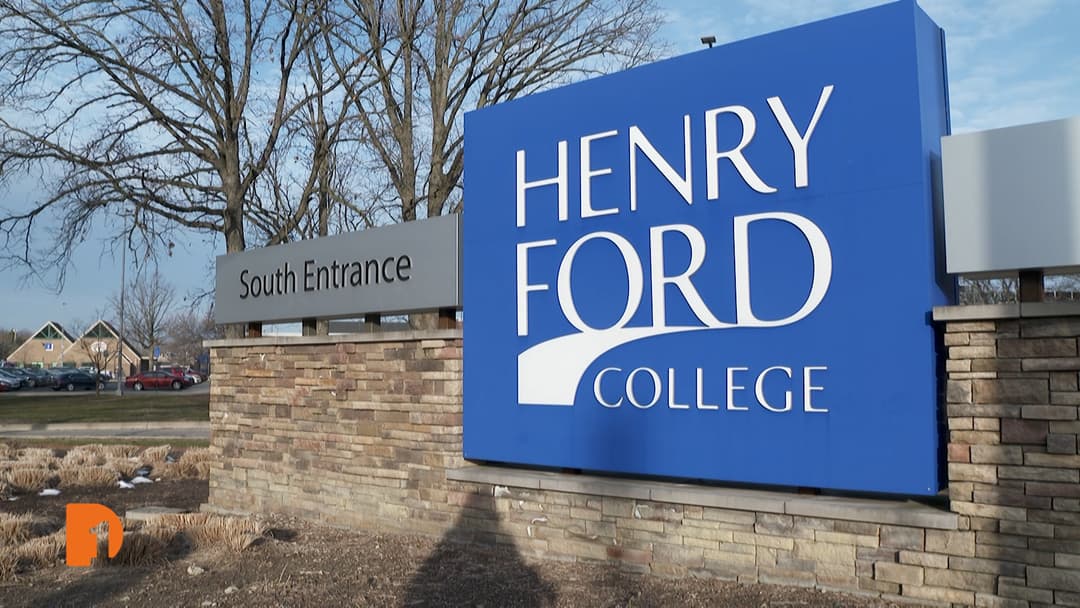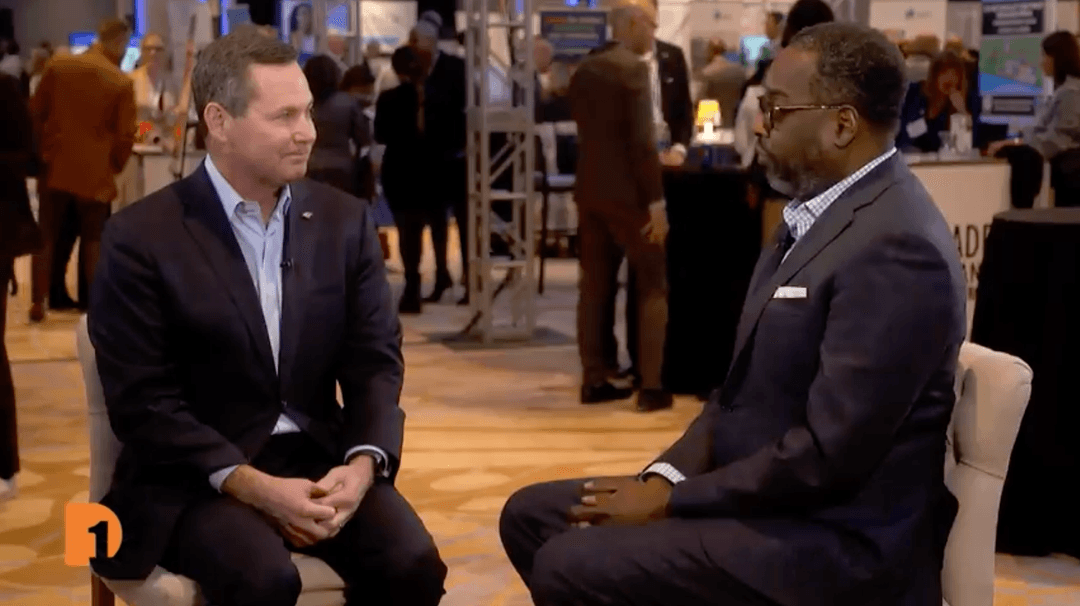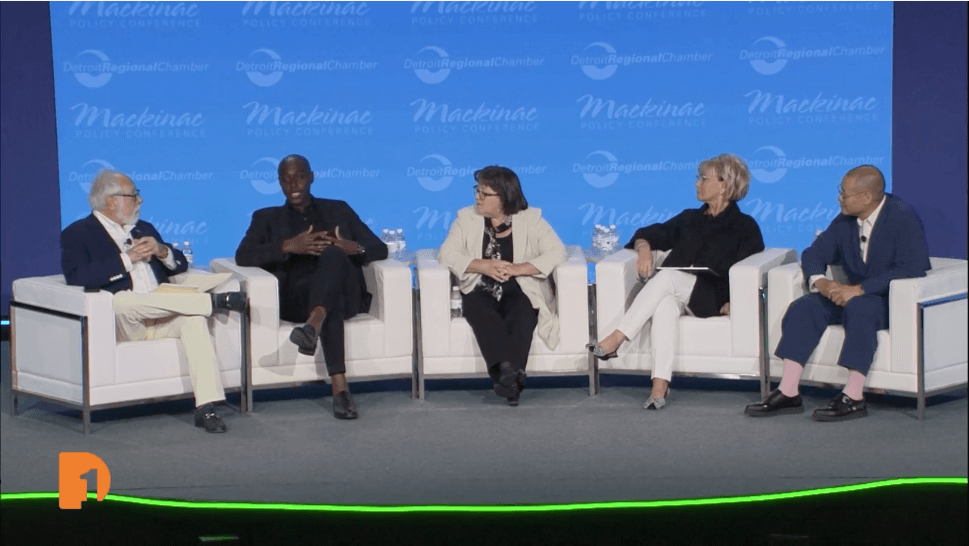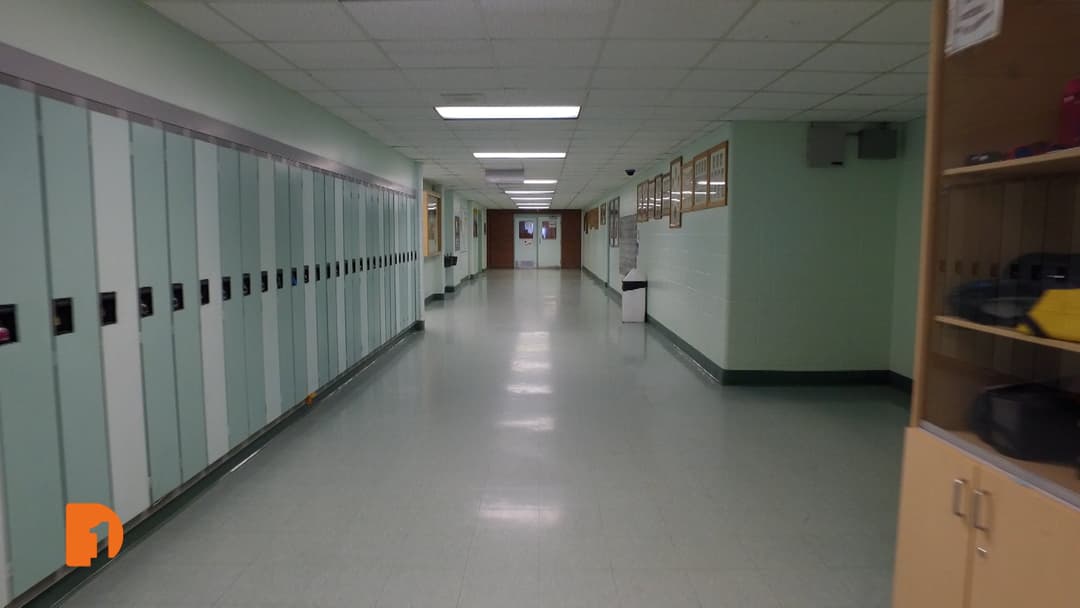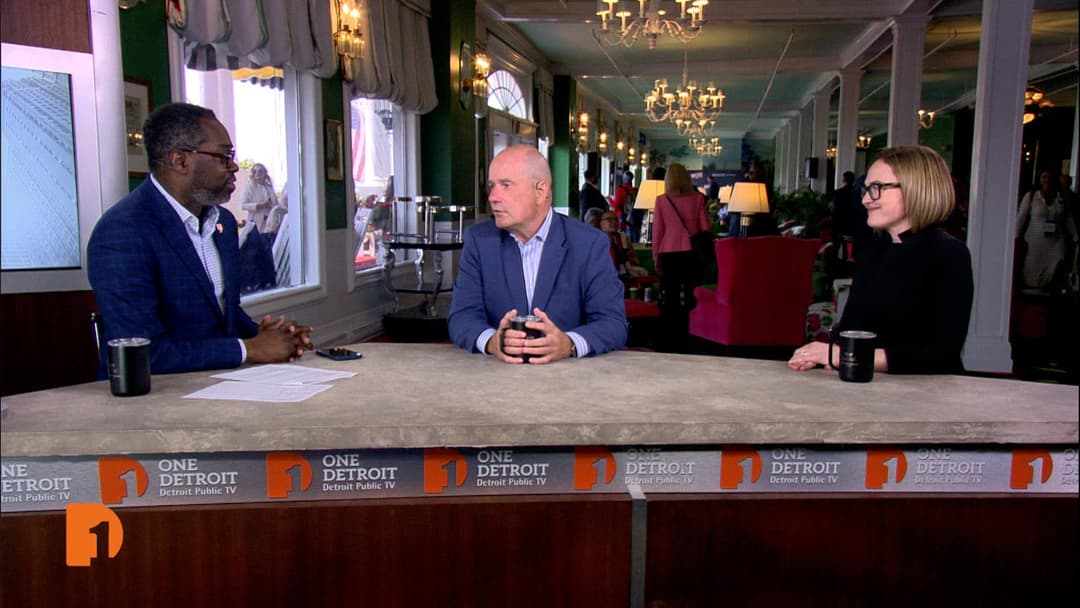New Study Pegs Racial Equity, Higher Ed as Keys to a More Prosperous Michigan Workforce
Apr 7, 2022
The Detroit Regional Chamber’s Michigan state of education annual report reveals an urgent need to reduce the racial equity gap and increase the number of students who attain a postsecondary degree. According to the report, the COVID-19 pandemic threatens to further weaken the region’s already challenging talent pipeline.
One Detroit contributor Nolan Finley, of the Detroit News, and contributor Stephen Henderson, of “American Black Journal,” sit down to discuss the findings in the report and the long-term impact on higher education and the state’s future workforce.
Full Transcript:
Nolan Finley: Well, Steve, the Detroit regional chamber’s out with its 3rd state of education reports measuring how well we’re doing in training our citizens for jobs and for, you know, success in society. We’ve been looking at these sorts of reports, both of us, probably for 20 years in Michigan.
We always set these very ambitious goals for education performance, and we always miss them. And we’re going to miss the new goals that this report is measuring progress on this idea of getting to 60 percent of post-secondary degrees or certificates by the year 2030, it’s not going to happen. And coming out of the pandemic, we actually have fewer people enrolled in colleges than we did before. And there’s not, we’re not seeing a push toward re-enrollment. I think that’s a very, very bleak finding for the future of our state.
Stephen Henderson: Yeah. Well, I mean, I have always said that this is an investment problem. When you look at what we invest in education on average, not just looking at the outliers, where we pay a lot of money for education and allow local jurisdictions to raise a lot of money for education. On the whole, we’re middle of the pack or below in terms of what we’re paying, we have huge districts like Detroit where the underinvestment has existed for decades. And you’ve introduced this wildly unregulated, not much better, completely other system that siphons money out of the public schools.
When it comes to higher ED, we’re nowhere near what other states are paying. When you look at the states that are ahead of us, the states that are moving up the ladder instead of down, they’re all investing much more. And to some extent, I mean, it’s a pretty cliched thing to say, but you get what you pay for. We shouldn’t expect more than what we have from Michigan schools right now.
Nolan Finley: Well, we got billions to work with now, more money than we’ve ever had to support education at all levels in this state, thanks to the various COVID taxes out of Washington. What we don’t see is a plan, and there’s institutional dysfunction in Michigan’s education system. We are one of the few states that have both an elected school board and a Department of Education under the governors, and they don’t work together very well. And, you know, what they do is provide a vehicle for finger-pointing.
Something gets done, they can go like this. There needs to be accountability for education, and the governor needs to be the accountable person, whether it’s Democrat or Republican, the governor should be responsible for education, that electing board should go. It serves the interests of the education establishment, not the interests of students. The other thing we have here is, and elsewhere in the country, is higher education is getting prohibitively expensive, particularly in an era of high inflation.
Folks can’t set aside the money they need to set aside to get their kids educated. And in any other or any other product, if you will, when demand falls off like it is now, prices would fall. And I would guarantee you those 13 of 15 public universities who saw fairly significant declines in enrollment over the last couple of years, aren’t lowering tuition, they’re raising tuitions. And we should be applying what we’ve learned over the pandemic in terms of virtual learning, distance learning, other uses of technology to lower the cost of an education. Because you’ve got kids now signing up for a four-year college degree that’s going to cost them, you know, $120,000 and they’re going to come out making 40 grand a year, the return isn’t apparent as it should be.
Stephen Henderson: At the higher ed level, we’ve built this series of fiefdoms really around the state. Look, I’m all in favor of the academic value of having independent colleges and universities instead of a system. But the economic value of it, I think, is really questionable. And this is a good reason, you know, you’ve had a lot of our colleges and universities build up in a way that didn’t make a lot of sense. How many med schools do we have right now in the state of Michigan? How many law schools?
Those were not things that I think we necessarily needed, they were temporary demand because of certain bubbles. But anyone who forecasted out would say, this is a place that’s not going to attract as many people, and so we shouldn’t invest that kind of money in it. But, you know, I also don’t necessarily subscribe to the idea that the growth in the cost of higher ed is tied to any sort of rational supply and demand model.
Nolan Finley: It’s obviously not, otherwise it would be going down.
Stephen Henderson: Yeah, I think everyone believes that everyone in higher ed believes that there isn’t much of a ceiling to what you can charge for people who want and need that four-year degree. You know, at the same time, we’re talking about not just the chamber, but many of the statewide institutions talking about this need to create many, many, many more college graduates, four-year college graduates to fulfill the jobs that we hope to attract and hope to build; the whole thing is off. We have to invest differently, and you have to invest more in K-12, I think.
Nolan Finley: Yeah. But this report, Steve, is also showing a familiar pattern in Michigan. As the economy improves, as prosperity comes back, people stop thinking about college, stop thinking about secondary training, go right into jobs, and that’s what this job this report is showing. It’s good for them on the short term. Long-term, I mean, success is going to depend on how much skill, how much education you bring to the workplace. And so, that’s not so much a positive thing, but that’s always been the case in Michigan and we’re seeing it again.
I think, you know, you constantly hear companies coming to Michigan saying, we got to have skilled workers, you know, the education systems letting us down. Of course, it is, but that’s been the case for decades now. They’ve got to take a bigger hand in training workers for the jobs they can’t fill. Obviously, it can’t all be left up to the education system because that system is failing. And, it’s not going to change this year, next year, it’s going to take a long time for that to change and a plan, which we don’t have. So, I think the companies are going to have to become much more aggressive about training their own workforces and their own future workers.
Subscribe to One Detroit’s YouTube Channel & Don’t miss One Detroit Mondays and Thursdays at 7:30 p.m. on Detroit PBS, WTVS-Channel 56.
Catch the daily conversations on our website, Facebook, Twitter @DPTVOneDetroit, and Instagram @One.Detroit
View Past Episodes >
Watch One Detroit every Monday and Thursday at 7:30 p.m. ET on Detroit Public TV on Detroit Public TV, WTVS-Channel 56.
Stay Connected
Subscribe to One Detroit’s YouTube Channel and don’t miss One Detroit on Thursdays at 7:30 p.m. and Sundays at 9 a.m. on Detroit PBS, WTVS-Channel 56.
Catch the daily conversations on our website, Facebook, Twitter @OneDetroit_PBS, and Instagram @One.Detroit
Related Posts
Leave a Reply
Your email address will not be published. Required fields are marked*



